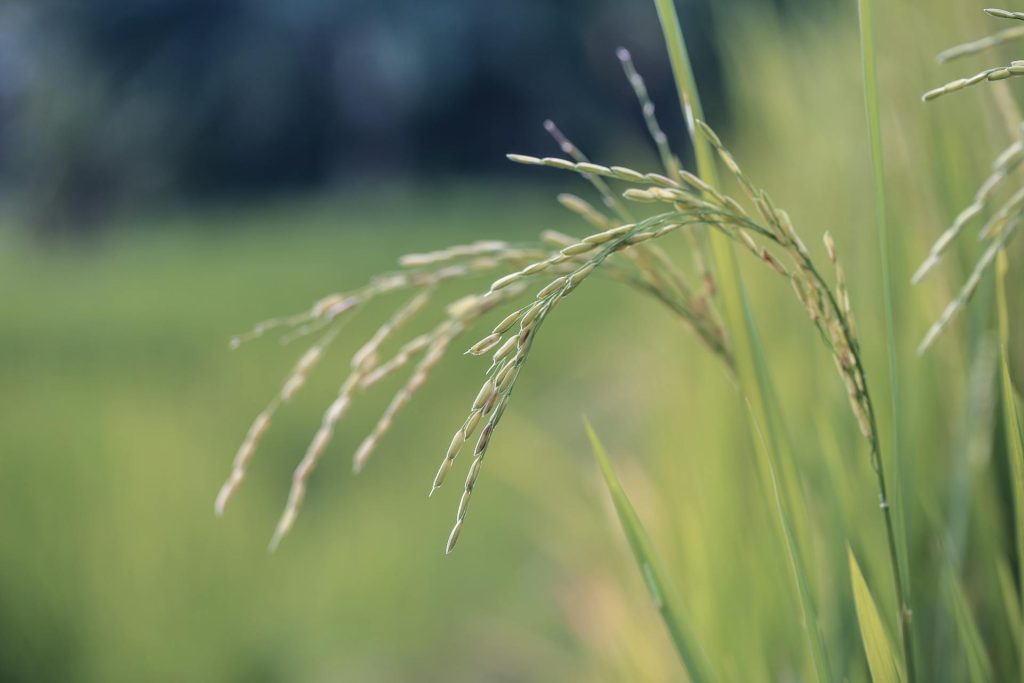Rice is India’s most important food crop, feeding over 60% of the population. However, traditional farming methods often lead to low yields, high water usage, and soil degradation. By adopting modern rice farming techniques, farmers can double productivity while saving water and costs.
Here’s a step-by-step guide to increasing rice yield using scientific, climate-smart methods.
1. Choose High-Yielding Rice Varieties
Select hybrid or improved varieties based on your region and climate:
| Variety | Yield Potential | Best For |
|---|---|---|
| Pusa Basmati 1509 | 6-7 tons/ha | Punjab, Haryana, UP |
| CR Dhan 310 | 5-6 tons/ha | Drought-prone areas |
| Swarna Sub-1 | 4-5 tons/ha | Flood-prone regions |
| DRR Dhan 49 | 5-6 tons/ha | High-temperature zones |
Pro Tip: Use certified seeds from ICAR, IARI, or Krishi Vigyan Kendras (KVKs).
2. Adopt Direct Seeded Rice (DSR) – Save Water & Labor
Why DSR?
- 30-40% less water than traditional transplanting.
- No nursery preparation, saves labor costs.
- Reduces methane emissions (climate-friendly).
How to Do It?
- Laser-level the field for uniform water distribution.
- Pre-germinate seeds (soak for 24 hrs, incubate for 24 hrs).
- Sow using a seed drill (25-30 kg seeds/ha).
- Apply herbicide (Pendimethalin) to control weeds.
Best for: Punjab, Haryana, Telangana.
3. Use System of Rice Intensification (SRI) – More Yield with Less Inputs
Why SRI?
- 20-50% higher yield than traditional methods.
- 90% less seeds required.
- Stronger roots, reduces lodging risk.
SRI Technique Steps:
- Transplant young seedlings (8-12 days old).
- Wider spacing (25×25 cm) for better tillering.
- Alternate wetting & drying (AWD) irrigation.
- Use organic compost (5-6 tons/ha).
Best for: Tamil Nadu, Odisha, Bihar.
4. Precision Nutrient Management (PNM) – Avoid Over-Fertilization
Optimal Fertilizer Dosing:
- N:P:K Ratio: 100:50:50 kg/ha (adjust via soil testing).
- Split Application:
- Basal Dose (50% N, 100% P, 50% K) at sowing.
- Top Dressing (25% N, 25% K) at tillering.
- Final Dose (25% N, 25% K) at panicle initiation.
Best Practices:
Use Leaf Color Chart (LCC) to optimize nitrogen.
Apply zinc sulfate (25 kg/ha) if deficiency observed.
5. Smart Water Management – Drip & AWD Irrigation
Why Reduce Water Usage?
- Rice consumes 3,000-5,000 liters per kg!
- Flooding leads to waterlogging & methane emissions.
Water-Saving Techniques:
- Alternate Wetting & Drying (AWD):
- Flood field (5 cm), then let dry until soil cracks slightly.
- Saves 30% water, increases yield by 10%.
- Drip Irrigation (For DSR):
- 50% water savings, better nutrient uptake.
Best for: Karnataka, Maharashtra, Andhra Pradesh.
6. Integrated Pest & Disease Management (IPM)
Common Rice Pests/Diseases:
- Pests: Stem borer, brown plant hopper.
- Diseases: Blast, bacterial leaf blight.
IPM Strategies:
- Resistant varieties (e.g., CR Dhan 801 for blast).
- Neem oil (5%) + Trichoderma bio-pesticides.
- Light traps for pest monitoring.
Avoid: Excessive pesticide use (kills beneficial insects).
7. Mechanization – Reduce Labor Costs
Modern Machines for Rice Farming:
- Transplanters (₹2,000-3,000/acre vs. ₹8,000 manual labor).
- Combine Harvesters (saves 60% harvest time).
- Laser Land Levelers (improves water efficiency).
Govt. Subsidies: 50-80% on farm machinery under SMAM.
8. Post-Harvest Management – Reduce Losses
Key Steps:
- Dry grains to 14% moisture before storage.
- Use hermetic storage bags (PICS) to prevent pests.
- Sell at MSP (₹2,300-2,500/quintal) via FCI procurement.
Expected Yield Increase & Profit
Traditional vs. Modern Methods:
| Method | Yield (tons/ha) | Water Use | Profit (₹/acre) |
|---|---|---|---|
| Flooded Paddy | 3-4 | 5,000 L/kg | 40,000-50,000 |
| DSR + SRI | 6-7 | 2,500 L/kg | 80,000-1,00,000 |
Government Schemes Supporting Rice Farmers
Key Programs:
- PM KISAN (₹6,000/year direct benefit).
- National Food Security Mission (NFSM-Rice).
- Per Drop More Crop (Drip irrigation subsidy).
Top Mistakes to Avoid
Late transplanting → Reduces tillering.
Over-flooding fields → Wastes water, causes root rot.
Ignoring soil tests → Leads to nutrient imbalance.
FAQs
Q: Which rice variety gives the highest yield?
A: Hybrid varieties like Arize 6444 (7-8 tons/ha).
Q: Can SRI be used with drip irrigation?
A: Yes! SRI + drip maximizes water savings.
Q: How to control weeds in DSR?
A: Pre-emergence herbicides (Pendimethalin) + manual weeding.






